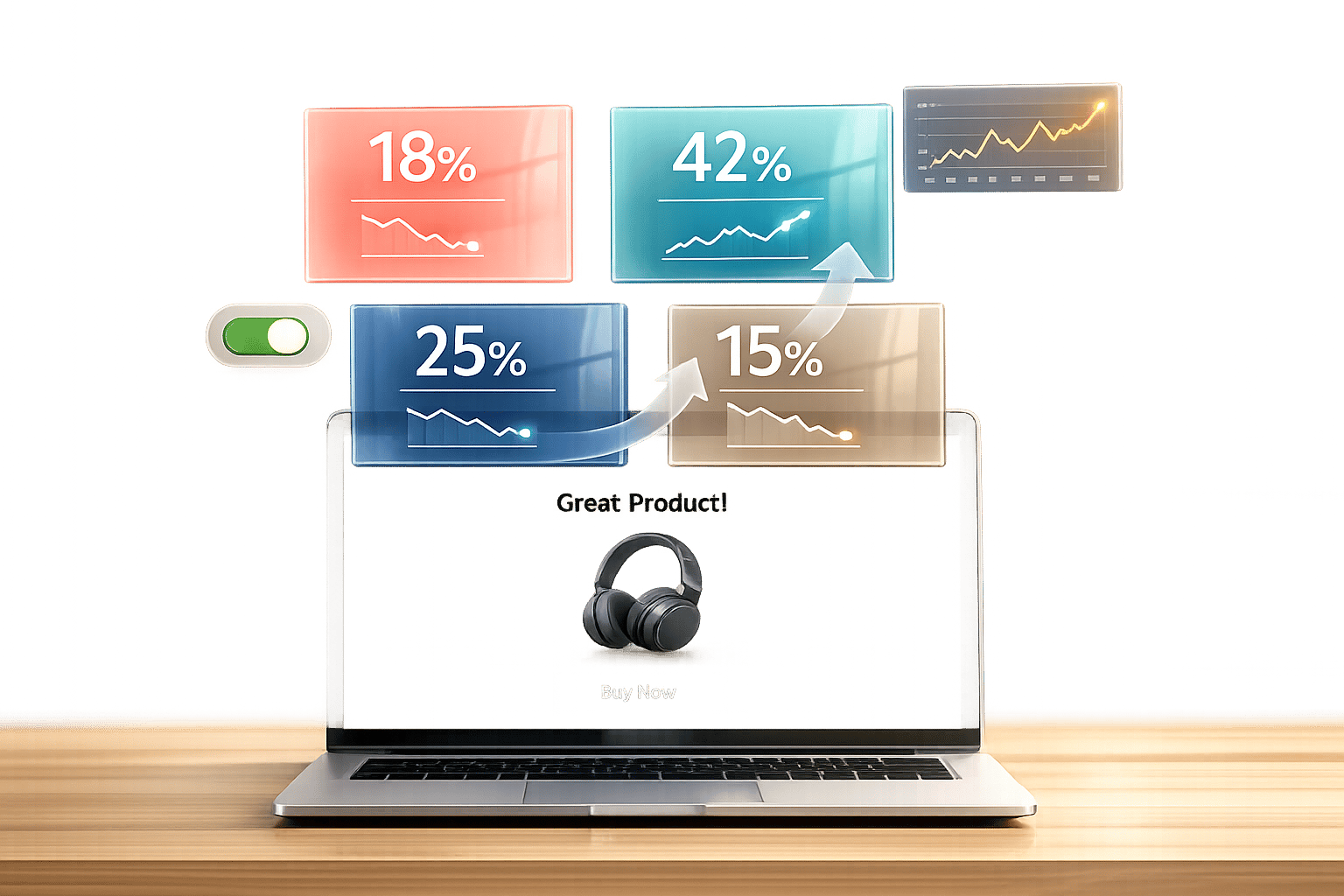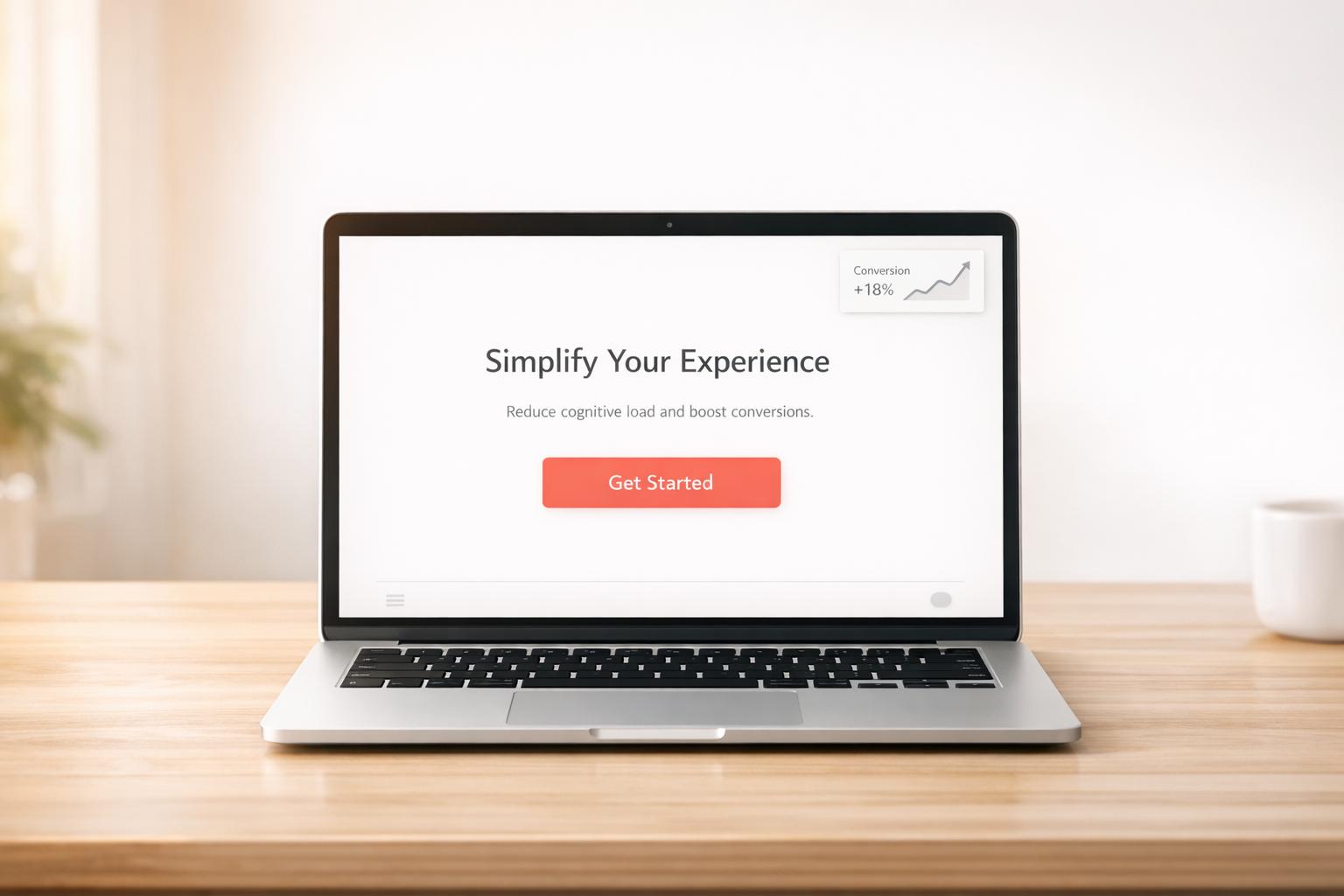

Nail Your Website Title (Or Risk Being Ignored)

Nail Your Website Title (Or Risk Being Ignored)
 15-04-2025 (Last modified: 15-04-2025)
15-04-2025 (Last modified: 15-04-2025)
Let’s be real, nobody gets excited about writing a website title.
It’s not as fun as designing a homepage or obsessing over your brand’s perfect shade of green. But when it comes to On-page SEO? Your website title is kind of a big deal.
It’s the first thing people see in search results. It’s what shows up on browser tabs. It tells Google what your page is about. And it plays a major role in whether someone clicks… or just keeps scrolling.
So, if your site is rocking something generic like “Home | My Business,” we’ve got work to do.
What is a Website Title, Exactly?
Let’s clear this up. When we talk about a website title, we’re usually referring to the title tag (also known as the SEO title or meta title). This is the bit of HTML that defines the title of a web page, and it gets pulled into search engine results as the clickable headline.
You’ll also see it in:
-
Your browser tab
-
Social media link previews
-
Bookmark bars
So yes; it’s small, but mighty.

And unlike your H1 or page content, your website title is a major trust signal. If it’s confusing, off-topic, or just plain uninspiring, users are way less likely to click. That’s a lost opportunity not just for traffic, but for conversions too.
Why Your Website Title Matters for SEO
Google’s bots are smart, but not psychic. Your title tag gives them a huge clue about the content of your page. It’s one of the most important signals for On-page SEO, and it helps your page get indexed properly.
But it’s not just about search engines.
Think about the last time you Googled something. Did you click the most keyword-stuffed title? Or the one that looked most relevant and interesting?
Exactly.
Your website title is where SEO meets user experience. It has to do two jobs at once:
-
Show up for the right keywords
-
Get real humans to actually click
This is where a little creativity goes a long way.
Good Website Title vs. Bad Website Title
Let’s look at a few examples.
Bad:
-
“Home”
-
“Welcome to Our Website”
-
“ABC Corp | Home Page”
These tell no one anything, and Google’s not impressed.
Better:
-
“Affordable Web Design for Small Businesses | ABC Web Studio”
-
“Luxury Dog Beds Made in the UK | Pawfection”
-
“Beginner’s Guide to A/B Testing | PageTest.AI”
See the difference? They include relevant keywords (web design, luxury dog beds, A/B testing), plus a reason to care. And crucially, they set expectations for what’s on the page – good for SEO and for bounce rate.

How to Write a Website Title That Doesn’t Suck
Here’s your quick-and-dirty checklist:
- Stick to 50–60 characters. Google cuts off longer titles, which looks messy.
- Lead with your target keyword. Especially important if your brand name isn’t well known (yet).
- Write for humans first. If it sounds robotic, rewrite it.
- Be specific. Vague = ignored.
- Make every page title unique. No copy-paste jobs across your site.
- Add emotional hooks or benefits when it makes sense.
And please (for the love of rankings) don’t keyword stuff. “Best Cheap Budget Affordable Fast Shoes” isn’t clever. It’s just spammy.
Why You Should Be Testing Your Website Titles
Let’s say you’ve got a solid SEO title. You’re showing up in search. Great!
But… are people clicking?
This is where A/B testing comes in. Because sometimes the title you think is amazing is the one everyone else ignores. And small tweaks can make a huge difference in click-through rate (CTR).
For example:
-
“SEO Audit Tool”
vs. -
“Run a Free SEO Audit in Under 60 Seconds”
Both include the keyword, but the second one adds urgency and a benefit. That tiny change might double your traffic. But you’ll never know unless you test.
Platforms like PageTest.AI (wink) make this super easy. You can run tests on different versions of your title and track real user behavior to see which one performs better.
Forget guesswork. Test, tweak, repeat.
Supporting SEO with Smart Page Titles
Your website title doesn’t work alone. It’s part of the bigger On-page SEO picture. To give it the best shot at ranking, make sure it’s backed up by:
-
A strong meta description (no keyword stuffing, just a clear, compelling reason to click)
-
Relevant H1 and subheadings
-
Keyword-rich (but natural) page content
-
Fast page speed
When everything aligns, Google sees consistency – and users get what they’re expecting when they click. That’s how you keep bounce rates low and conversions high.
Common Website Title Mistakes to Avoid
Let’s do a little myth-busting:
-
You don’t need to include your business name in every title. Unless you’re Nike or Netflix, it’s not the most clickable bit.
-
Don’t duplicate titles across pages. Google may treat them as low-value.
-
Avoid ALL CAPS or weird symbols. It doesn’t help, and it looks spammy.
-
Stop using the word ‘Home’ as your homepage title. Seriously. Just stop.
Final Thoughts
The humble website title might not be the flashiest part of your site, but it’s one of the hardest-working. Get it right, and you’ll see better rankings, higher CTR, and more engaged users.
And don’t stop at “good enough.” Test different versions, track performance, and let the data guide you. You wouldn’t run a paid ad without testing headlines, so why leave your organic traffic up to chance?
If you’re not sure where to start, give PageTest.AI a whirl. It’s built for testing things like titles, CTAs, and headlines, so you can optimise your site one click at a time.
Because in SEO, the title is never just a title. It’s the pitch. Make it count.
say hello to easy Content Testing
try PageTest.AI tool for free
Start making the most of your websites traffic and optimize your content and CTAs.
Related Posts

 19-02-2026
19-02-2026
 Ian Naylor
Ian Naylor
AI Tools for Multivariate Testing Plans
Run no-code multivariate tests with AI: auto-generate variants, get real-time analytics, and reallocate traffic to improve conversions without developers.

 17-02-2026
17-02-2026
 Ian Naylor
Ian Naylor
How AI Shapes Semantic Search Trends
Examines how AI, NLP, and generative models are changing semantic search, user behavior, zero-click trends, and SEO strategies.

 16-02-2026
16-02-2026
 Ian Naylor
Ian Naylor
How Cognitive Load Impacts Conversion Rates
Reduce cognitive load with simpler layouts, clearer CTAs, and fewer choices to cut friction, improve UX, and lift conversion rates—backed by tests and metrics.
